What




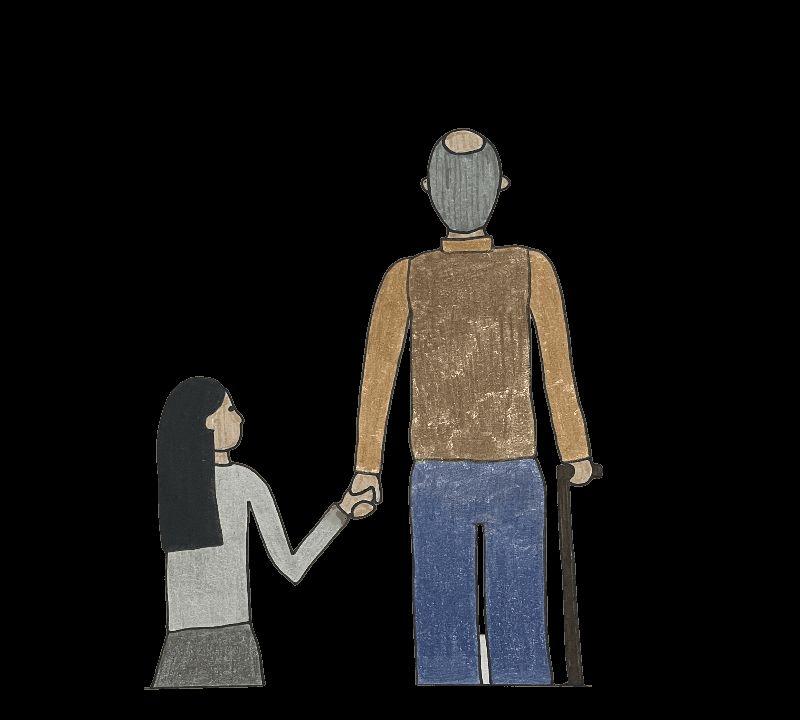







































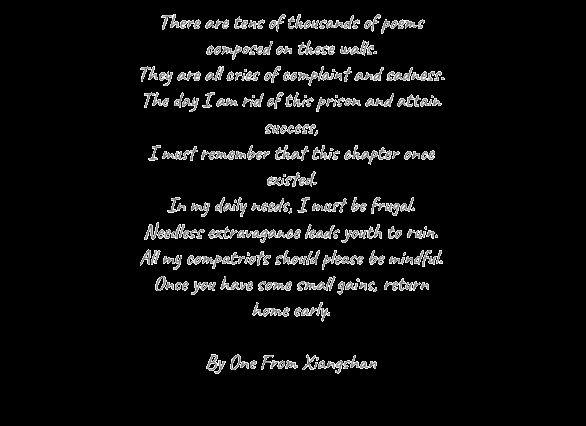


Source: H. Mark Lai, Genny Lim, and Judy Yung. 1980. Island:Poetry and History of Chinese Immigrants on Angel Island, 1910-1940 (San Francisco Study Center)






































Grandpa never liked to speak about the past, or about where he’d come from. He kept his history like an old mirror, forever murky and never clear. I’d ask him about it sometimes, but he’d always gloss over it, “I don’t have the time he’d say” or “oh, you don’t want to listen to an old man go on about that”.
But I did.

And so that is how it would go. Eventually I stopped asking him about it and he would never mention it. Existing in the present, our relationship was strong and he was my hero, despite the fact I did not know who he was. I found myself wondering, if I didn’t know who he was, then how could I know who I was?


This all changed when we learned about Ellis Island in history. My teacher was telling us about the welcoming nature of the American ‘melting pot’. He said it meant that anybody could become an American, that no matter where you came from you could ‘melt’ into the culture. But somehow this didn’t feel quite true to me. Some of the children I had met weren’t welcoming, they teased me about my hair and about my eyes. I looked different to them.
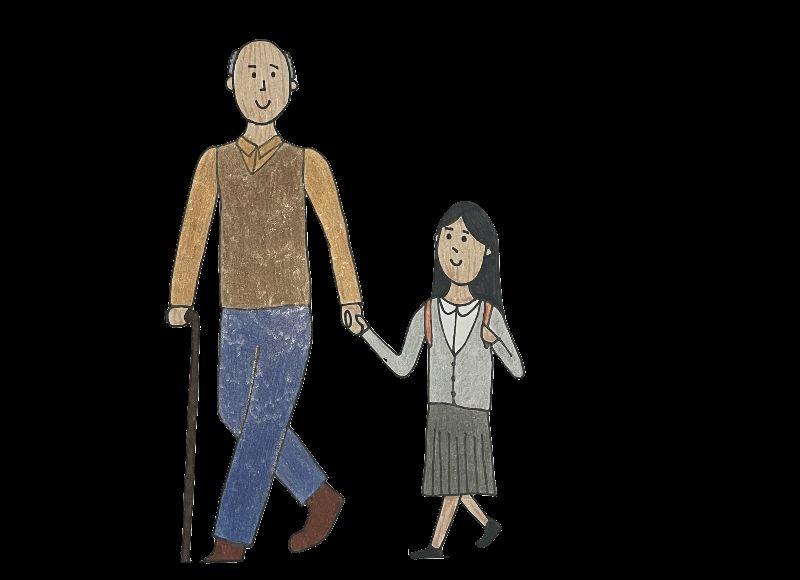
On the way home, Grandpa asked me about my day.
“It was good,” I said, “ we learnt about America and all the people that came here from other places and found a home. Mr Thomas said America is just like a melting pot, where all the people would go in and when they came out they were American, there is even a cartoon on it.”
Grandpa stopped, I noticed him frowning.
“What’s wrong Grandpa?” I asked.
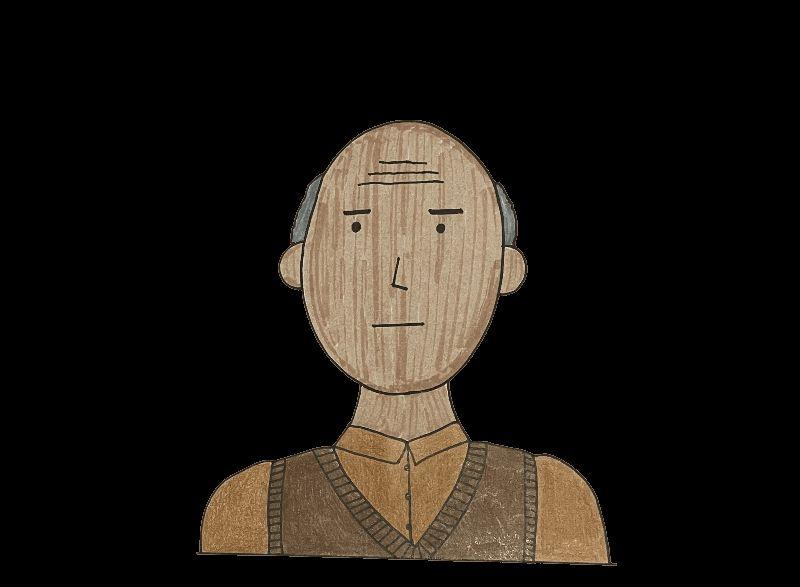
He looked at me and I could see tears in his eyes. I’d never seen Grandpa cry before. He took a deep breath, “nothing little one, I’m just not sure that’s the experience of America that everyone had.”
He started to walk again but my body wouldn’t move the same way it had moments before, it felt heavy, like I couldn’t fully pick my feet up. I didn’t understand. What could he mean? Everyone wanted to come here.
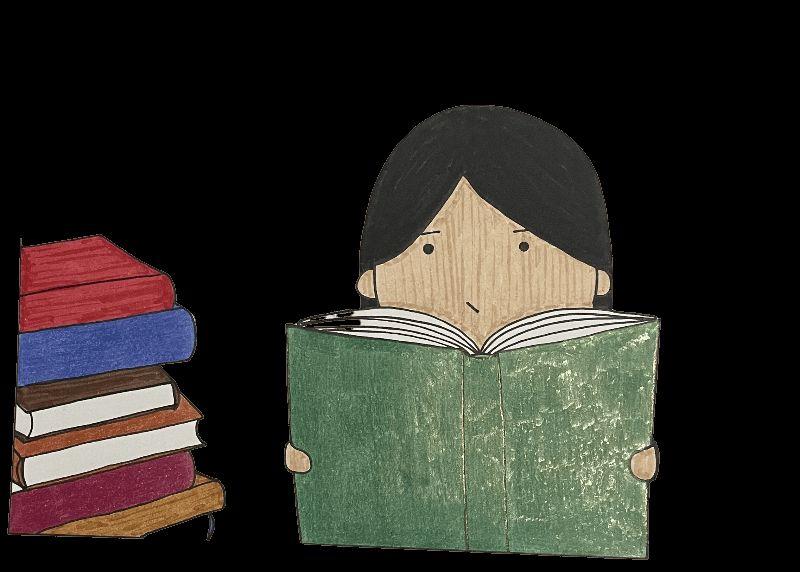
I was confused about what Grandpa had said, so I tried to find out what I could about America and about the people who came here. But there were not many books that mentioned people from China, and everything just seemed to agree with what I had learned in class.
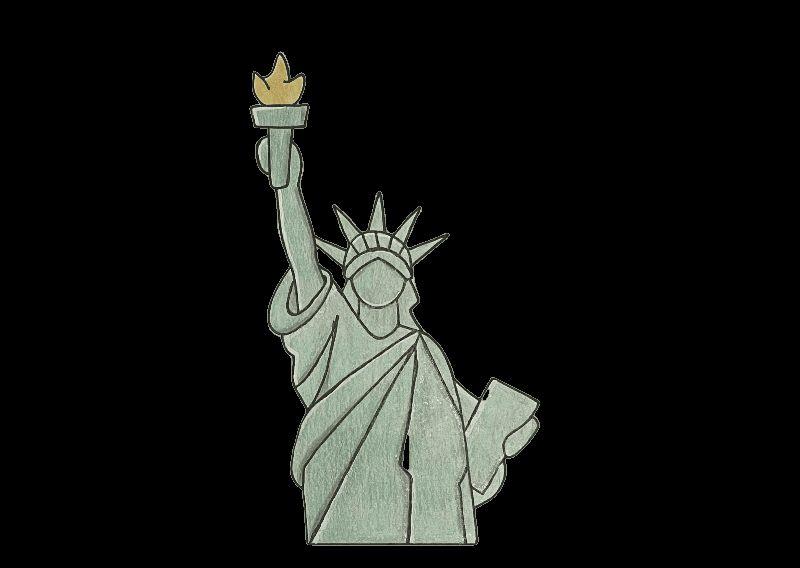

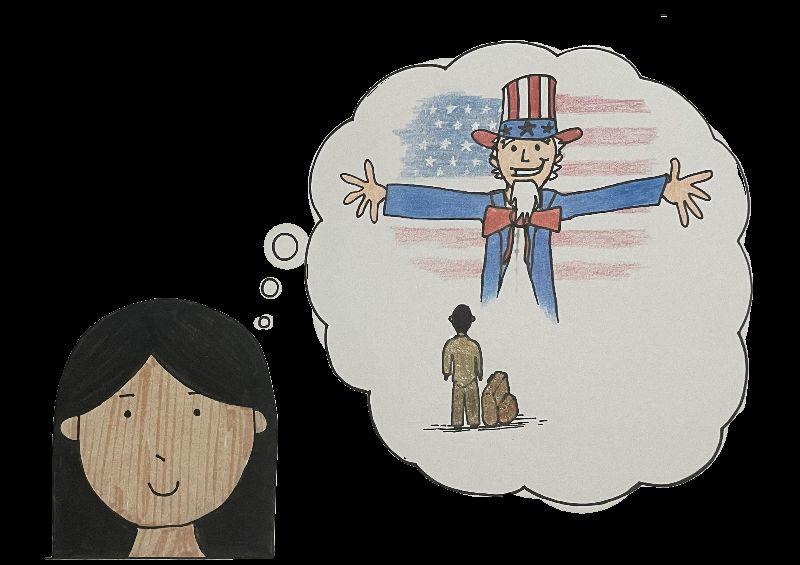
Perhaps Grandpa had been wrong, if all these books and teachers were telling me that America was welcoming then surely that was true?
But I thought about my own experience and I wasn’t quite sure I believed that anymore. I would just have to persuade Grandpa to tell me about it.
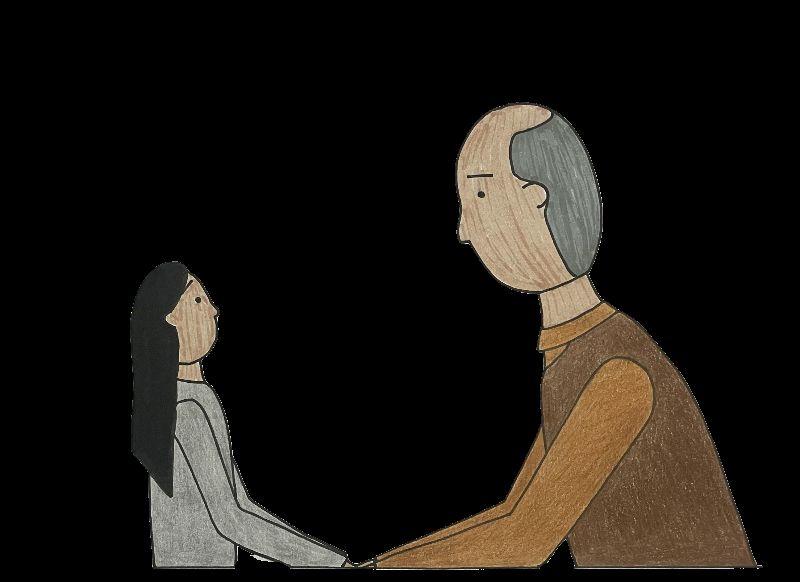
“Grandpa, what will happen to your history when you can’t tell it anymore?” I asked.
Grandpa paused for a moment, considering what I had said.
“I don’t know little one, it will probably be gone, just as I will.”
“But what will take its place?” I asked.
Grandpa considered again, this time his brow furrowed.
Because that was the point. If Grandpa couldn’t tell me his past and his story, then I would have someone else’s version of that story and that just didn’t sit right with me. His words mattered. Not just to him, but to me and to everyone.
“The problem is little one,” he began, “my story might get people in trouble, because some of my friends weren’t allowed to come here. There were laws banning them, exclusion acts, but they found ways around it and came anyway. I don’t want to get my friends in trouble. You understand that, right?”
I looked up at Grandpa and I smiled.
“Yes Grandpa. But maybe there’ll be a time where it's not dangerous to talk about, when we can share our past without having to worry. I want to know it, so that I can tell it if you can’t”.
The edges of Grandpa’s lips turned up. “Ok little one,” he paused, “this is how I came to America, what I left behind and what I and lots of other people went through. Settle down, because it’s quite the story:


I was young when I moved here. My parents wanted better opportunities for me and I needed to earn money to send back to my siblings. At first I did not want to go, I was leaving my family behind and that was scary, but I knew that I could help.
Although, it was a time when most Chinese people weren’t allowed in America, there were a few exceptions. So my parents decided that I would pretend to be the son of someone already living here so that I would be allowed to stay.
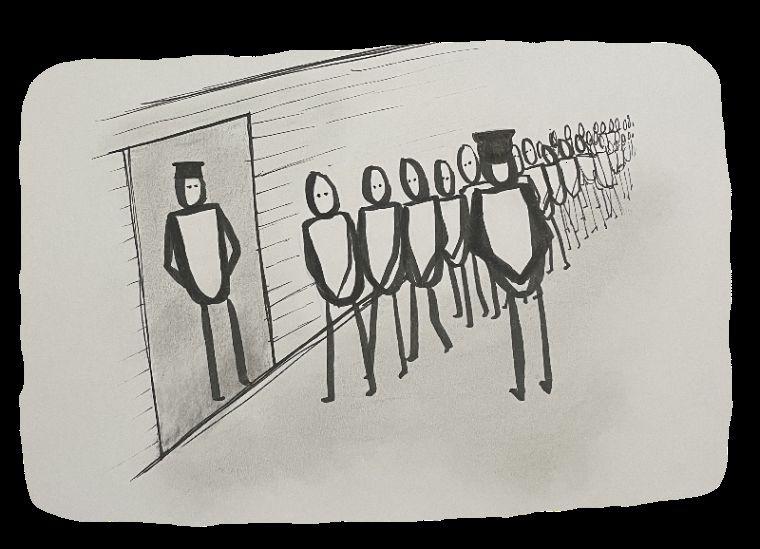
It wasn’t easy, I had to prepare myself to be asked lots of questions, to be interrogated, and my Ma Ma said I had to know the answers or else I would get in trouble. Everybody helped me, they told me about other people who had done the same and what they had been asked. They prepared me as best they could.
We all arrived on a great big ship, but we weren’t all treated the same. I wasn’t allowed to just walk off like other people could. I was welcomed, but it wasn’t with open arms… I was welcomed by guards.
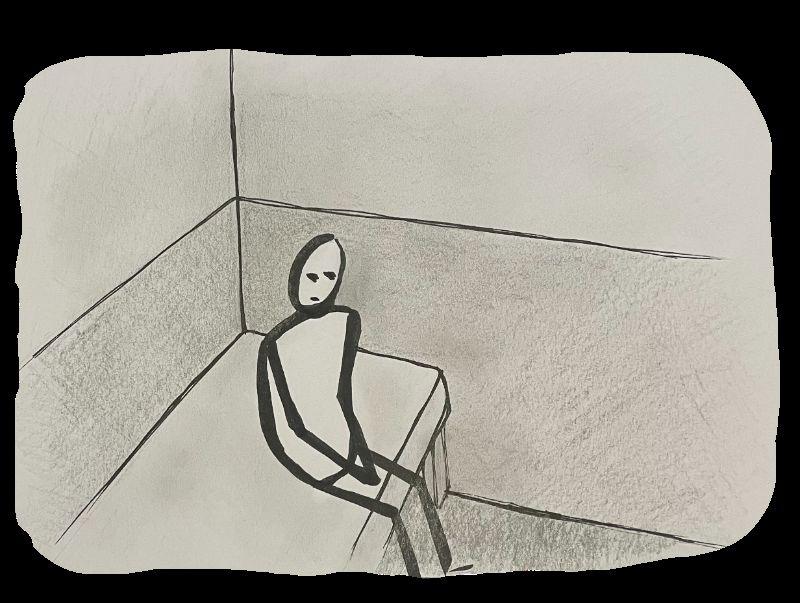
They took us to a place called Angel Island. We were told we would be kept there while they decided if we were allowed to stay or not, it could take days, weeks, even months. There were bars on the windows and they separated the Chinese people from everyone else.
They divided us up between men and women and I watched children being separated from their Ma Mas and it made me miss my own.
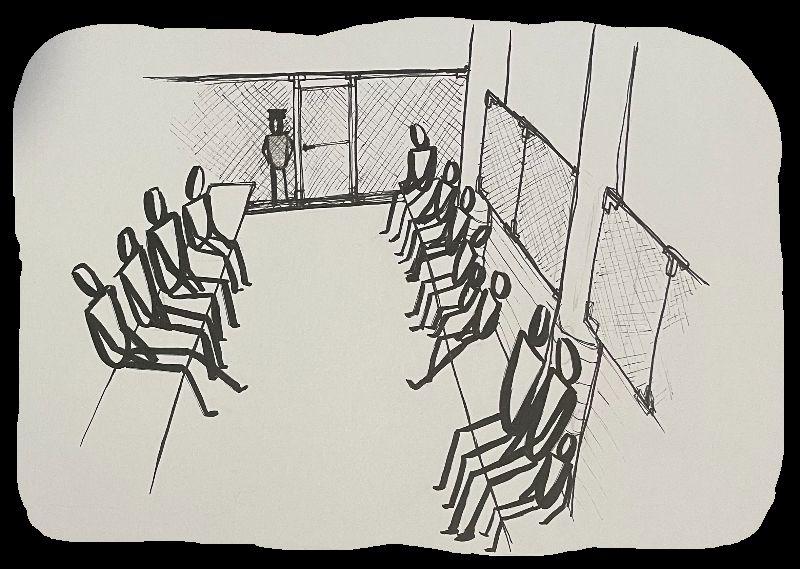
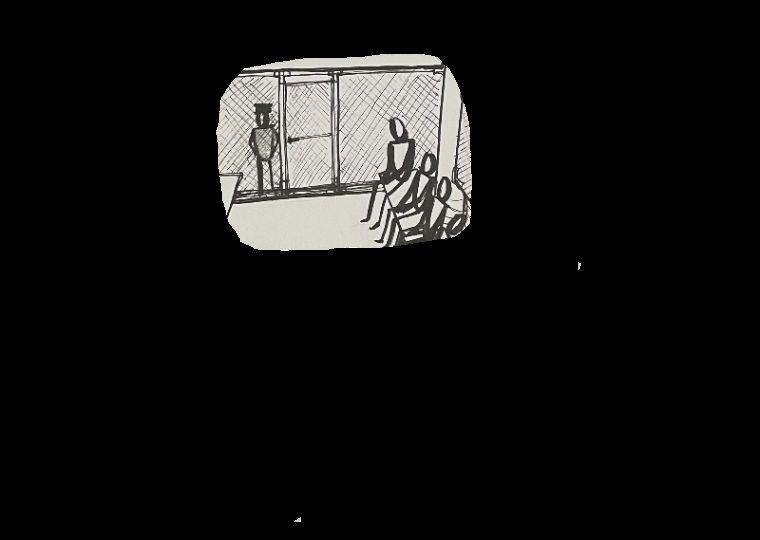
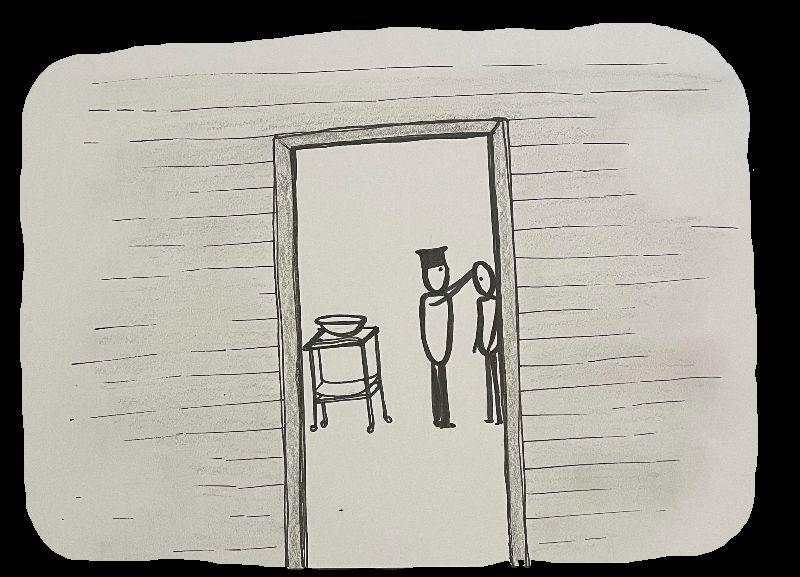
We were taken to be seen by a doctor, because they were worried we would make the people in America ill. But I did not have anything wrong with me. One doctor tried to touch my feet and then my eyes without washing his hands, yet I was the one who was dirty? I didn’t understand it.

How many rooms are in your house?

How many steps from your house to the end of the street?
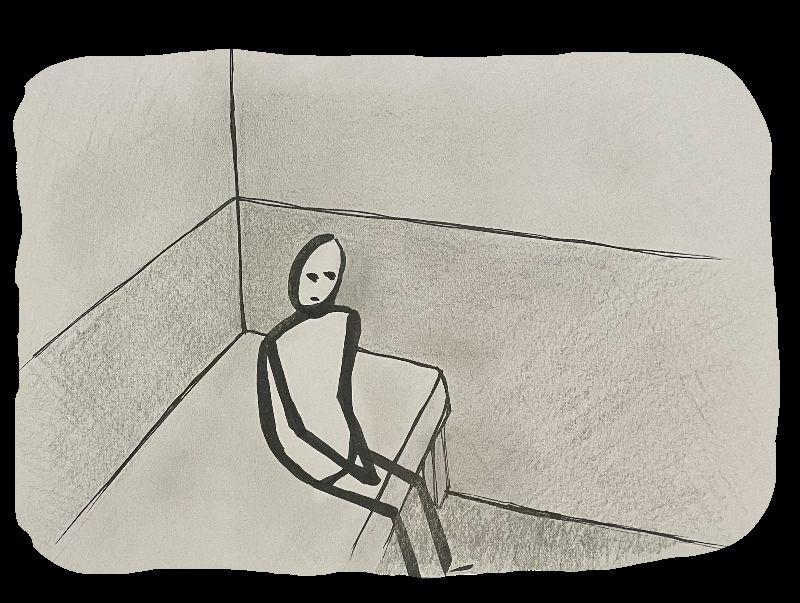
I was taken into a room with a few men and asked lots of questions about the people who I had said were my parents. The questions were hard and they didn’t make sense. I was scared that I had given the wrong answers, but I tried to remember what my family had told me before I came.
I spent the next few days trying to find things to keep me occupied. There was so much waiting. I played a game with some gum. I let it melt on a heater and then I would catch it with some paper when it dripped. Then I would do the whole process again…
and again…
and again… and again…

One day, I noticed people carving things into the walls, physically etching themselves into the landscape as the landscape had permanently etched itself onto us.
They were writing stories on the walls in our language. One in particular stood out to me. It was telling me to remember this part of my life. I remember thinking how could I forget?
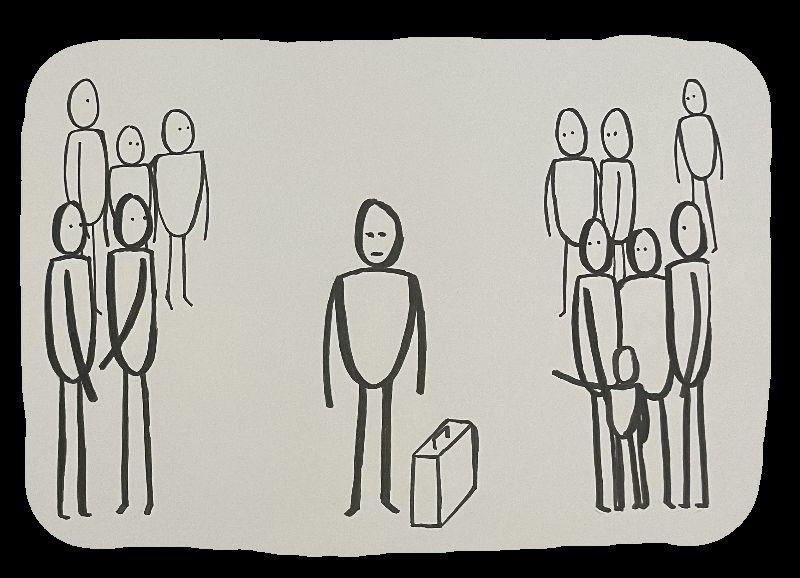
When I was finally released, America wasn’t as I had imagined it. People stared because I looked different and they thought I was untrustworthy. I decided, in that moment, I would do anything just to fit in.
But I never thought about what it would cost me. The parts of me given up, just because I wanted to fit in and to be seen as ‘good’.
I never thought of what it would cost you, little one.”

I was shocked. Everything I had been told was a lie. America may have been welcoming to some people, but that wasn’t the case for Grandpa. Yet despite how hard it was, he did it anyway. He found a way to move here.
But I was sad as I thought about all he had given up to fit in and all he had been through just to gain entry. After all that, he was still treated like an alien.

I wanted to know more about his life before.
“Grandpa?” I asked, “Can you tell me some more about China and your home before you came here? I want to learn about your Ma Ma and what she was like?”
“Yes little one,” he replied. “I would like to tell you about home and about her very much”.
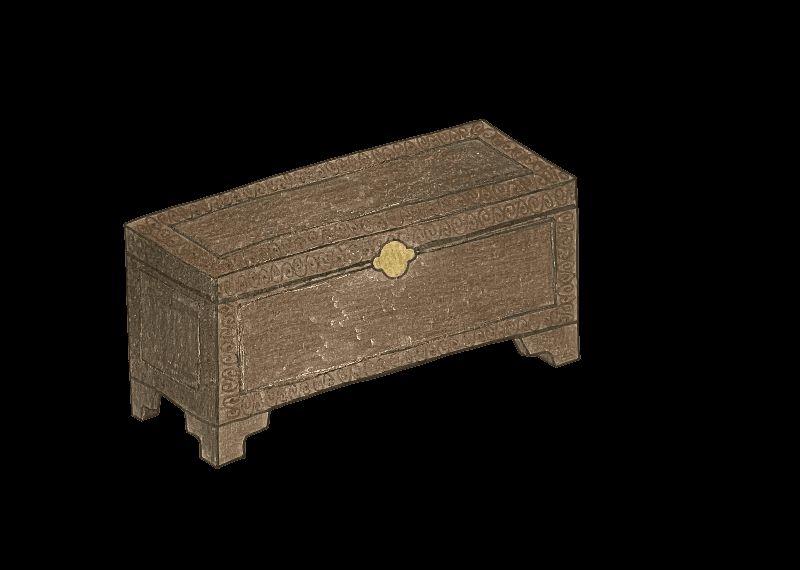
That evening, Grandpa and I sat in the attic and he showed me all the things that he had from China, he told me about my Great Grand Ma Ma, about the friends and children he played with and what his siblings were like.
I finally felt like I knew Grandpa.

I was sad that I could not share what I had learned yet with my friends and class, but I had promised Grandpa I would not. At least for now, when I learned about America I had another image in my head, which was different to the one I was being told.

And I felt lucky that I had Grandpa to tell me about our past, so that one day I could tell it myself.
























































































I must remember this chapter…
I must remember this chapter…
I must remember this chapter…
I must remember this chapter…
I must remember this …
I must remember …


Source: H. Mark Lai, Genny Lim, and Judy Yung. 1980. Island:Poetry and History of Chinese Immigrants on Angel Island, 1910-1940 (San Francisco Study Center)










Who gets to tell your history?
And what will that history say?











This is the story of a young girl and her Grandpa. The young girl wants to learn about her past, but her Grandpa is desperate to forget it.




That is, until he realises that what his granddaughter has been told, is not quite as true as she thinks it is...





















